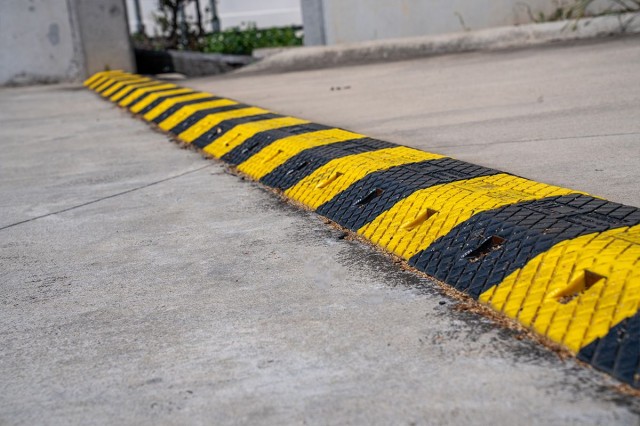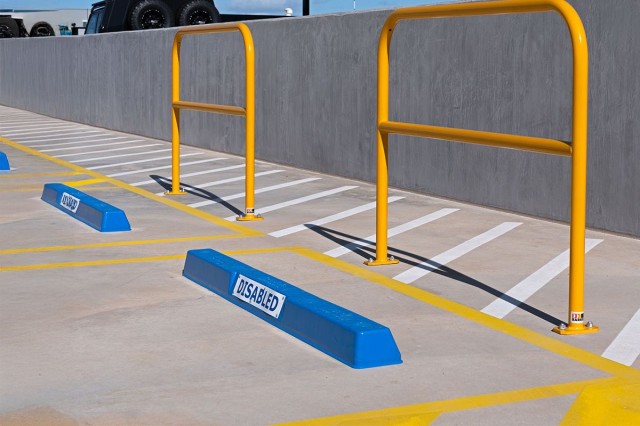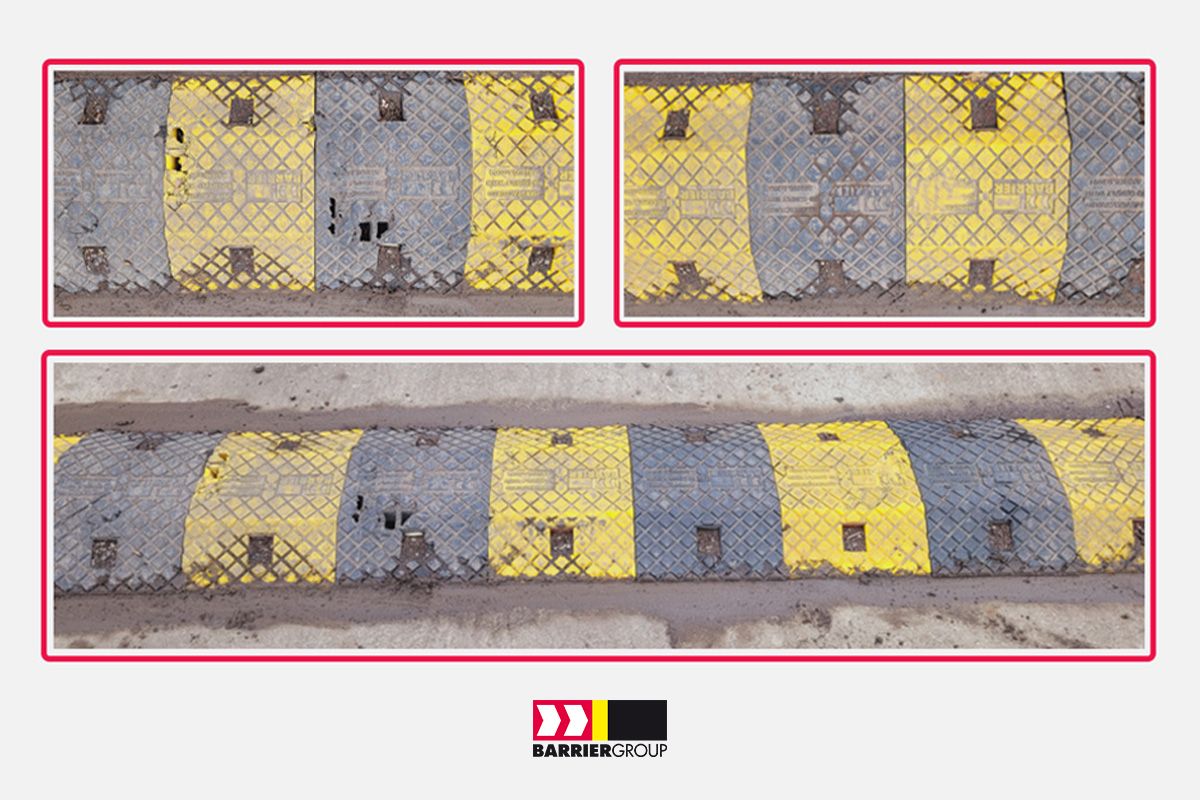From Waste To Road Safety: The Greener Side Of Speed Humps And Wheel Stops
Speed Humps are one of the most common types of road safety and traffic control, and for good reason: a 2023 study by Injury Prevention found that using speed humps for traffic management leads to a 77% reduction in fatal, serious, and minor injuries after installation.
Wheel stops are similarly impactful, helping to address road and carpark safety issues while creating a boundary between vehicles and obstacles or pedestrians.
However, the environmental impact of developing products like plastic or rubber speed humps and wheel stops can often be overlooked. These products can contribute to the extraction of non-renewable resources and create waste during production.
Barrier Group has partnered with Polymeric Powders to develop innovative road safety products that enhance environmental sustainability through recycled materials.
Table of Contents
What are Speed Humps?
Also known as 'speed bumps', speed humps are raised sections on the road to reduce a road user's vehicle speed. They are also a key part of slowing down traffic to help create safer environments for both drivers and pedestrians, helping to prevent accidents. Speed humps can often be found in high-risk, heavy pedestrian traffic areas like car parks, residential streets, and pedestrian crossings.
What are Wheel Stops?
Wheel stops help improve safety and manage traffic flow. They are low barriers that stop vehicles from going too far. This prevents damage to buildings, curbs, and other parked cars.
Wheel stops also help vehicles remain in their assigned zones, minimising the likelihood of accidents and safeguarding pedestrians in high-traffic areas such as parking spaces.
Environmental Sustainability In The Safety Industry Today
The safety industry has made significant strides in its efforts towards environmental sustainability, including the growing use of recycled materials to produce safety products, implementing energy-efficient manufacturing processes, and ensuring products are durable and long-lasting to minimise the need for replacement (UniCare Safety).
Environment Sustainability Meets Road Safety
As part of the growing momentum towards environmental sustainability in the safety industry, Barrier Group teamed up with Polymeric Powders to launch an innovative initiative aimed at boosting environmental sustainability by using recycled materials to create climate-friendly road safety products.
Supported by the Circular Economy Market Fund, the project explored new ways to use recycled materials in the creation of products, helping to support Australia's economic transition to net zero while also creating products designed to perform according to Australian Standards.
The project was the first commercial uses of a world-first patented plastic-rubber recycling technology developed by Polymeric Powders that allowed the production of speed humps in standard injection moulding machines but using an innovative recycled rubber composite.
Pilot
Working with long-standing partners at Geelong Galvanisers, speed humps were installed to collect data on the durability and performance of the new composite material. The Geelong Galvaniser site was selected due to its ideal characteristics of heavy vehicles and equipment, combined with consistent traffic.
The previous installation of Barrier Group LLDPE speed humps at the same premise meant that a baseline could be readily established. Over a period of four months, the condition of the speed humps was monitored, and valuable performance data was collected.
Outcomes
The outcomes from the Pilot were positive, with no significant operational difference between the recycled composite speed humps and the existing LLDPE speed humps. Durability, degradation, and colour UV performance were similar between the two models.
This commercial evaluation trial of environmental sustainability in safety products demonstrates that recycled materials can perform just as well as traditional rubber materials and confirms their suitability for use in high-traffic areas.
Environmental Benefits
The use of recycled materials aligns with global sustainability trends and offers significant environmental benefits.
Incomparable uses, reused rubber has been shown to be a viable alternative, with experiments carried out in road applications by the Burwood Council, the City of Sydney, and the Northern Beaches Council have successfully incorporated recycled rubber into asphalt blends. Some estimates on this use of reused rubber forecast that overall carbon emissions could be decreased by as much as 30% on roads constructed with these materials.
Conclusion
Using recycled rubber-plastic composite materials to produce car speed rumps and wheel stops is a forward-thinking, innovative approach towards environmental sustainability in the safety industry. It provides environmental benefits and uses materials that can withstand heavy wear and tear, an important operational consideration for areas with high vehicle and equipment traffic.
Barrier Group is Australia's leading provider of industrial and warehouse safety solutions, and we can help your business or facility find the perfect safety solution.
Check out our free on-site consultation services and to find out how we can help you make sure your workplace and workers are safe and secure.
Trusted by Australia's Largest Brands for Workplace Safety Solutions. Shouldn't you be next?
Subscribe to stay connected with Barrier Group and discover cutting-edge safety solutions, updates, and industry insights!






